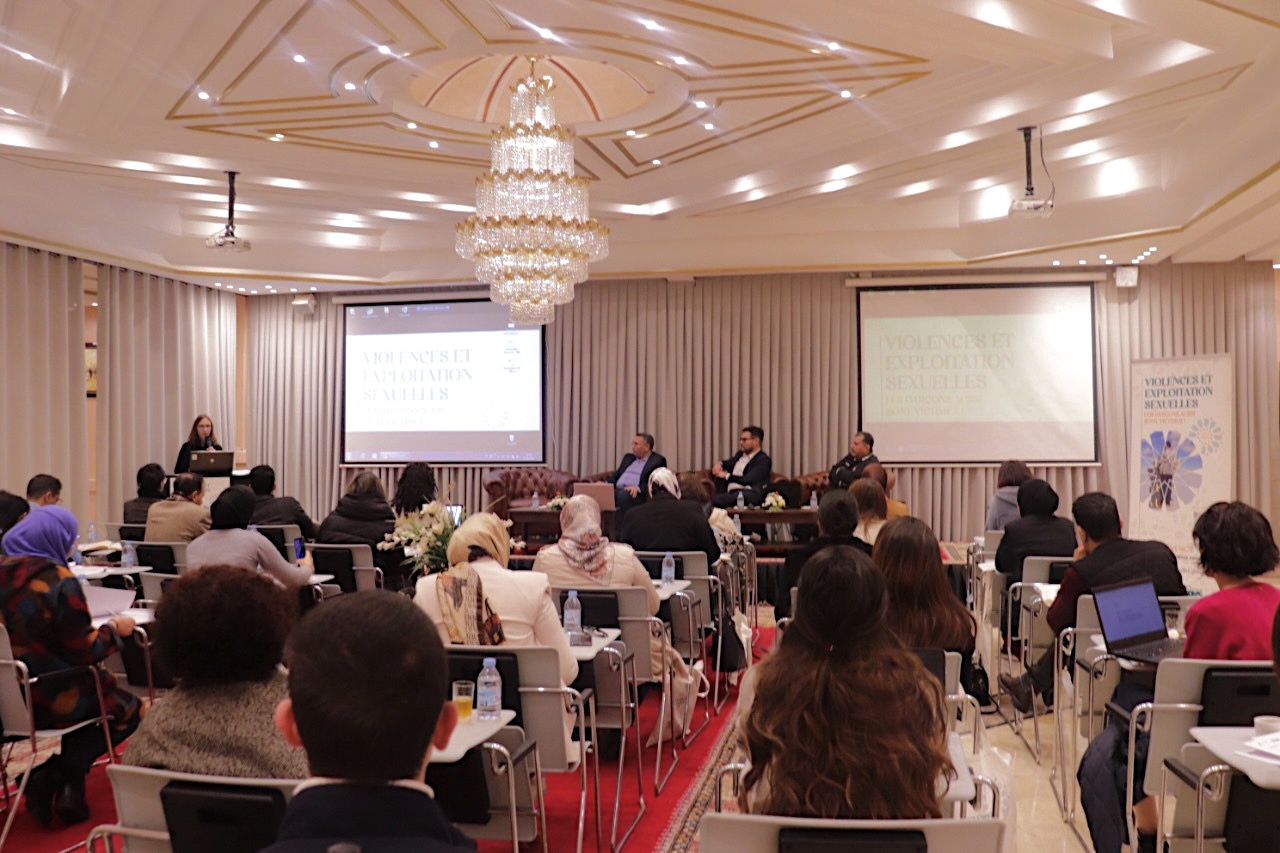
Morocco—ECPAT International and AMANE launched the Morocco Boys report on 12 January in Rabat, Morocco.
As part of the Global Boys Initiative, the report examines the sexual exploitation of boys in Morocco and identifies gaps in child protection legislation and support services for young boys, explores the factors placing them at risk, and provides recommendations to tackle this issue.
“Training and awareness-raising on sexual violence against children is a complex societal issue that must involve families, teachers, social workers, and all those who have direct contact with children.”
~Spokesperson for Humanity & Inclusion
Ministry members, local law enforcement, and local and international NGOs were invited to interact with the research findings.
Research shows that there is a need to ensure that children in Morocco are properly trained and have access to information about sex, sexuality, consent, personal boundaries, and what adults around them can and cannot do.
In Morocco, the absence of dedicated support and reintegration programmes for boy survivors of sexual exploitation continues to hamper their psychosocial recovery and social reintegration. A spokesperson at Association Salé Regreg Développement Inclusif highlighted the need for more tailored services for young survivors:
“There are few facilities dedicated to the care of child victims of sexual violence—especially boys— and they are not sufficiently equipped to meet the specific needs of these children, such as with confidential listening rooms and a reassuring environment. There is also a need for psychological support for children, the number of psychologists available is not sufficient.”
Additionally, the proliferation of mobile technology, personal internet use, and social media, has provided offenders with more sophisticated ways to exploit children, including boys. While Moroccan legislation criminalises certain forms of online child sexual exploitation and abuse, it does not explicitly criminalise online grooming for sexual purposes, sexual blackmail of children, and live broadcasting of child sexual abuse. These gaps in legislation can not only negatively impact the protection of boys from sexual exploitation, but also prevents them from being recognised as victims. Encouragingly, a spokesperson for the Public Ministry agreed that:
“It is essential to work on reporting and review the legal framework with regard to online violence.”
The event concluded with organisations acknowledging the need to prioritise the development of more tailored awareness-raising interventions and support services for boy survivors of sexual exploitation and abuse in Morocco.
Click here to read a summary of the Global Boys Initiative: Morocco report.
Click here to read the full report.
_________
ABOUT THE GLOBAL BOYS INITIATIVE:
At the 2016 Global Survivors Forum organised by ECPAT International, male survivor-advocates of sexual exploitation explained that services for boys were extremely rare, and even where services may include boys in their work, there is limited focus on addressing the specific characteristics, experiences and supports required by boys.
In 2019 to delve into this, ECPAT co-authored an academic paper that looked at the global situation of sexual exploitation of boys. It showed that despite a growing global awareness that boys do experience sexual exploitation, and at greater rates than previously recognised, there is limited research available to fully tell this story.
As the programmatic responses to identify and meet the particular needs of boys are scarce, ECPAT International launched the Global Initiative to explore the sexual exploitation of boys which activates our global network of member organisations in a range of research and response activities.
Learn more about the Global Boys Initiative here.